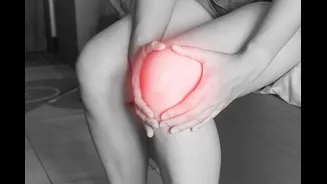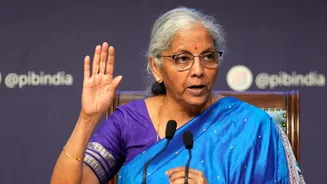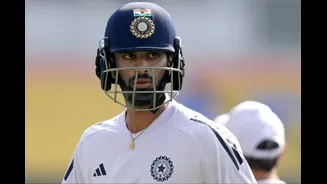Chhatrapati Sambhajinagar, Aug 10 (PTI) Former Chief Justice of India D Y Chandrachud has said that despite producing some of the finest legal minds, our legal education system continues to grapple with
fundamental gaps that hinder its ability to meet the demands of the 21st century.
Addressing law students here on Saturday, Chandrachud also said lawyering is a stressful profession and the mental health concerns of lawyers should be addressed systematically.
He was speaking at the Vishnupant Advant lecture series on the topic 'The Present and Future of Legal Profession: Opportunities, Challenges and Drawbacks.’
“Despite producing some of the finest legal minds, our legal education system continues to grapple with fundamental gaps that hinder its ability to meet the demands of the 21st century,” he said.
“We are witnessing today a digital explosion, data protection disputes, climate change litigation, online dispute resolution and digital first regulatory frameworks are becoming the new norms,” he said.
“Pragmatically, this means reforming legal education and continuing professional development programmes to foster cross-sectoral expertise. By cross-sectoral expertise, I mean digital law, data privacy, environmental law, cultivating critical reasoning and social empathy, and encouraging collaboration with other professions such as technology experts and social scientists.
“To achieve this vision, law schools and continuing education programmes must anticipate the evolving landscape of legal careers and actively prepare both students and current professions to succeed within it,” he said.
Chandrachud said the curriculum must expand beyond traditional doctrines and procedures to include foundational training in data science, tools and experience designed for technologies and principles of algorithmic accountability.
“Students need to develop skills to assess AI model outputs, detect biases in training data and work collaboratively with software engineers to define tools that uphold constitutional values and human rights standards.
“Moot court exercises could incorporate artificial intelligence adversaries that challenge students to predict algorithmic decisions and formulate compelling arguments to hold automated systems accountable,” he said.
“During my tenure as Chief Justice, I had the great opportunity of unveiling several technological reforms. Reforms that I am happy to report have remedied to a great extent the issues that plague our judiciary. We introduced e-filing of cases available across nearly all states,” he said.
Today, the Supreme Court judges operate virtually in a paperless manner and they are provided with scanned, bookmarked and digitally signed case records which they access, read, annotate and preserve for their reference, Chandrachud said.
He advised aspiring lawyers to ignore insults from opponents as it will not help them win a case, and said he has been following this principle after retirement also.
He also said lawyers should reorientate their identity as "facilitators of justice before everything", and stressed that ethics should be prioritised.
There is no shortcut for success, and the students of law should be lifelong learners and independent thinkers, he said.
Citing legal luminary Fali Nariman's advice for lawyers, the former CJI said they should always be honest and responsible with their opinions and avoid sporting the “champ” syndrome". Law is not a game, he added.
“Know your law and facts deeply. Be careful to not get lost in trying to fit your case into old judgments and don't suffer from "case law diarrhoea," Chandrachud said.
"If your opponent throws insults, ignore them. Responding won't win you the case. I have carried Fali Nariman's principle that if your opponent throws insults, ignore them. I am carrying that in my retirement as well. To people who throw insults at me, I have only one answer, if that makes you happy, so be it," Justice Chandrachud said.
"Read, observe and learn how to argue and how not to argue," he said. “When you have multiple arguments, lead with your weakest but make it your strongest effort. Save the best argument for last," he said.
Chandrachud said the hardest working judges do the most amount of work. Stay busy, sharp and avoid complacency, he said, adding that "integrity is everything."
"Understate your case rather than overstating," the ex-CJI said. Leave anger outside the court. Even in heated arguments, calmness wins more than passion, he added.
The former CJI also said lawyers should not be quarrelsome, pointing out that "your colleagues shape your reputation".
"Courtesy matters more than you think, he said, adding that lawyers should never indulge in personal attack on judges or opponents.
"Focus on skills and substance over showmanship," he said.
Lawyering is a stressful profession and several studies have pointed out that lawyers' jobs can be often very stressful and making them more prone to addiction and struggling with mental health issues, such as depression, at higher rates than the general population, he said.
"Talk to each other and understand those who are in distress, why they are in distress," he said.
The former CJI asked students to keep upgrading themselves. He also underlined the need of more women to join the field of law. PTI AW GK VT VT




















